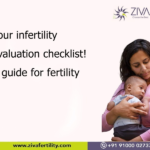
Out of all the ART methods, IVF is one of the most common, successful and popular procedures. IVF is a short form for in vitro fertilisation. During the IVF procedure fertilising the egg with sperm is done in a lab artificially. After successful fertilisation, the resultant healthy embryos are transferred into the uterus. After successfully implanting the embryos inside the uterus, the course of pregnancy follows a natural cycle. Various factors can affect the success of fertilisation, such as:
- Egg/embryo quality
- Stimulation protocol and timing of ovulation
- Receptivity of the endometrium (implantation)
- Embryo transfer
- Sperm factors
- Lifestyle Factors
- Ovarian Reserve approaches
- Result of Previous IVF Attempts
- Coping with Stress
One should be cautious of the dos and don’ts of IVF. Your doctor will inform you about what to avoid when starting IVF. When you become ready for IVF treatment, please follow what to avoid when starting IVF. The suggestions include diet, habits, lifestyle, exercise, and stress management.
What to avoid when starting IVF?

Cheese: Eating cheese during fertility treatment is not advised. One should avoid mould-ripened cheese like camembert cheese and brie. One should avoid eating these because they could cause a listeria infection. Also, please avoid drinking unpasteurised milk during IVF pregnancy.
Coffee: The caffeine intake must be lower than 200 mcg of caffeine a day. Better to avoid caffeine.
Smoking and drinking: Smoking, drinking alcohol or any unhealthy substances are to be avoided before, during, and post IVF procedures. Alcohol consumption puts you at risk of miscarriage, impairment of the foetus, and slow or no proper growth in the baby inside your uterus; hence avoid it completely.
Refined sugar: Due to the fast breakdown of refined sugar during the digestion process, it can trigger your blood sugar levels and increase insulin resistance.
Raw eggs: Raw eggs have a bacteria called salmonella, which causes food poisoning. Avoid Caesar salad, cookie dough, and eggnog that contain raw eggs.
Saturated fats: Consuming saturated fat-rich food during fertility treatment negatively impacts your IVF treatment outcome. Daily consumption of saturated fats reduces eggs in ovaries, which have a lower diving pace.
Foods rich in mercury: Consuming foods rich in mercury increases congenital disabilities in the baby. Mercury is present in higher amounts in aquatic foods or seafood. Avoid consuming undercooked or raw oysters, shellfish, cold prawns, crab, and mussels.
Self-medication: At the start of the IVF process, ovarian stimulation is done to release more eggs during ovulation. So one should be very careful of medications, especially if they are taken without the guidance of a doctor. When you visit your doctor, clearly explain your current medicines and medical history to them.
Manage stress: One of the deterrents of fertility is stress. Before starting the IVF process, deal with your stress points. One can join a good yoga class or start practising meditation to relieve stress.
We at ZIVA Fertility Clinics will prepare you for an IVF process well before starting the process. You can freely discuss any habits, such as caffeine, smoking, alcohol, substance abuse, etc., so we can guide you on quitting them. We also offer counselling services to you and your partner to prepare you mentally and emotionally. For more information, visit our website at https://zivafertility.com/ or contact us at +91-9100002737, +91-9392834024, or info@zivafertility.com.
















